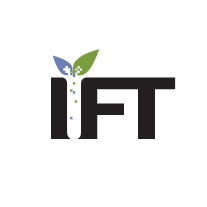Smart Snacks for Kids Competition Returns for a Fifth Year
Back for its fifth year, the IFTSA Smart Snacks for Kids Competition challenges students to develop a fun and nutritious food or beverage product targeted at kids and/or teens.
Back for its fifth year, the IFTSA Smart Snacks for Kids Competition challenges students to develop a fun and nutritious food or beverage product targeted at kids and/or teens. Products must abide by the USDA Guide to Smart Snacks in Schools recommendations. Teams were empowered to use their imagination to engage their chosen audience in the science and overall appeal behind a novel product of their creation. A crucial component of a winning product is the team’s ability to relay the food or beverage’s “smart” qualities to both a technical and a general audience.
The competition will take place from 3–5 p.m. on Monday, July 11, in the Vista Room S406AB of the convention center. Here’s a look at the concepts from the six finalist teams:
Anagrahams – University of Wisconsin, Madison (USA)
Fingerella – Tel Hai College (Israel)
Jiro – Tecnológico de Monterrey Campus Monterrey (Mexico)
Ocean Hero Bites – Purdue University (USA)
Saurus Snacks – Utah State University (USA)
Waffuns – University of Costa Rica (Costa Rica)
Winners of the competition will be announced at the IFTSA Closing Ceremony on Tuesday evening, July 12, in the S100 Ballroom of the convention center. Each of the finalist teams will receive a certificate and a reimbursement for travel to IFT FIRST 2022 of up to $1,500. Prizes include $3,000 for first place, $1,500 for second place, and $500 for the third-place team.
Food Technology Articles

How to Formulate for Food Intolerances
In this column, the author describes the global prevalence of food intolerances and provides insight into state-of-science ingredient replacement and removal methods when formulating gluten-free and lactose-free foods.

Top 10 Functional Food Trends: Reinventing Wellness
Consumer health challenges, mounting interest in food as medicine, and the blurring line between foods and supplements will spawn functional food and beverage opportunities.

Whipping Up a Bright New Idea
A profile of whipped cream category innovator Whipnotic.

Meet the 2024 Influencers
Get to know six dynamic, game-changing contributors to food system advancement.

Can Food Science and Technology Transform the Food System?
IFT President Sean Leighton reflects on the value of collaboration within the science of food discipline and highlights the value IFT FIRST will offer in this area.
Recent Brain Food

The Promise of Underutilized and Biofortified Crops
A new IFT white paper explores two approaches with big potential for combating global malnutrition.
Ensuring Authenticity
In this sponsored content interview, a leading supplier of cooking oils discusses how to maintain product integrity amid the slippery problem of olive oil adulteration.
Supporting Sustainable Innovation
Health, welfare, and sustainability concerns have spurred consumers to explore plant-based alternatives. In this sponsored content interview, global ingredients company ofi discusses the forces driving this growing trend, and how it supports product innovation in this emerging category.
IFT Helps Young Innovators Excel in Their Careers
Amid mounting innovation pressures, a unique primer offers guidance for those new to food and beverage product development.
Building the Food Science Talent Pipeline
Support for IFT's Feeding Tomorrow Fund helps attract, retain, and celebrate the food scientists of the future.

